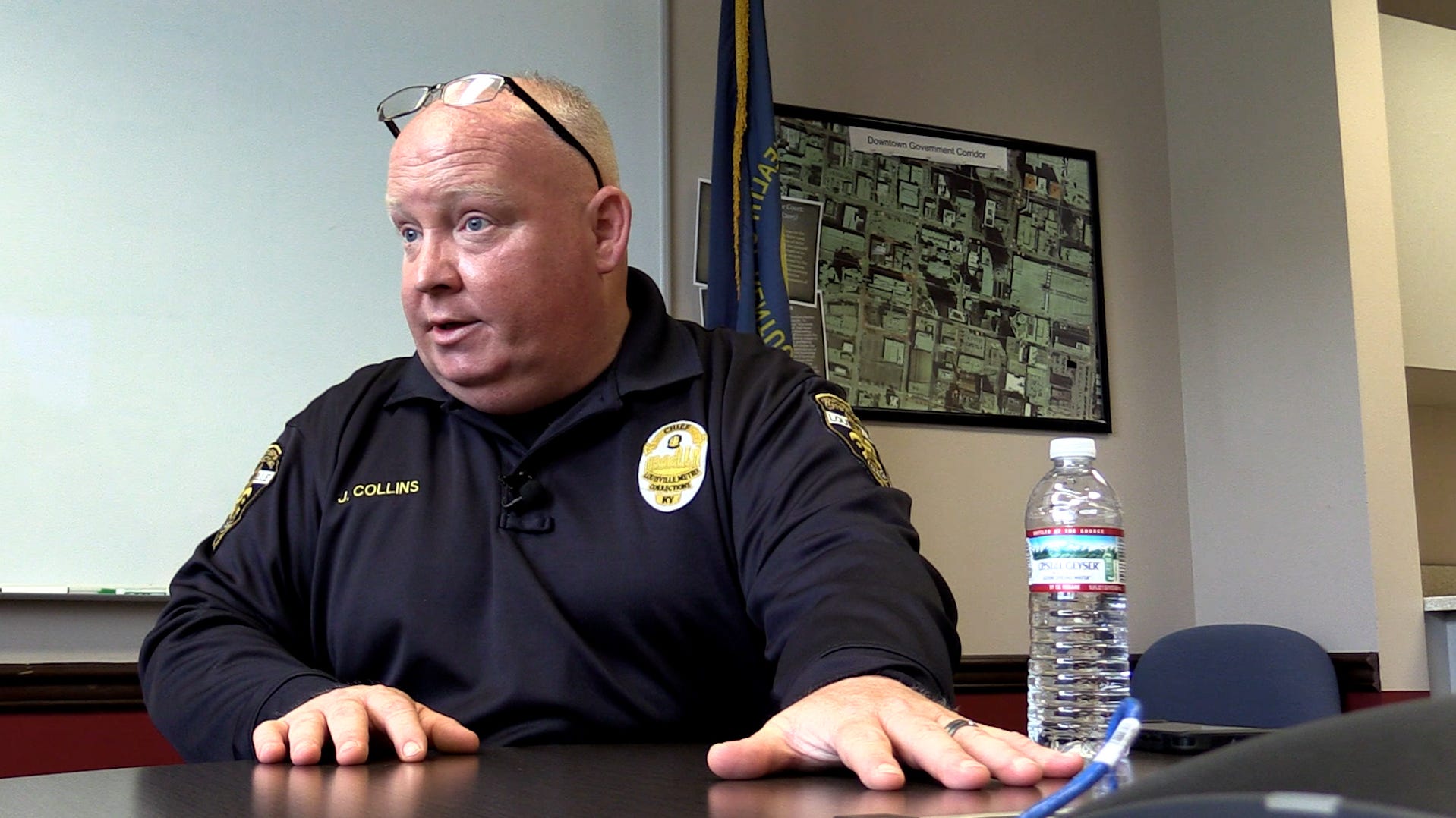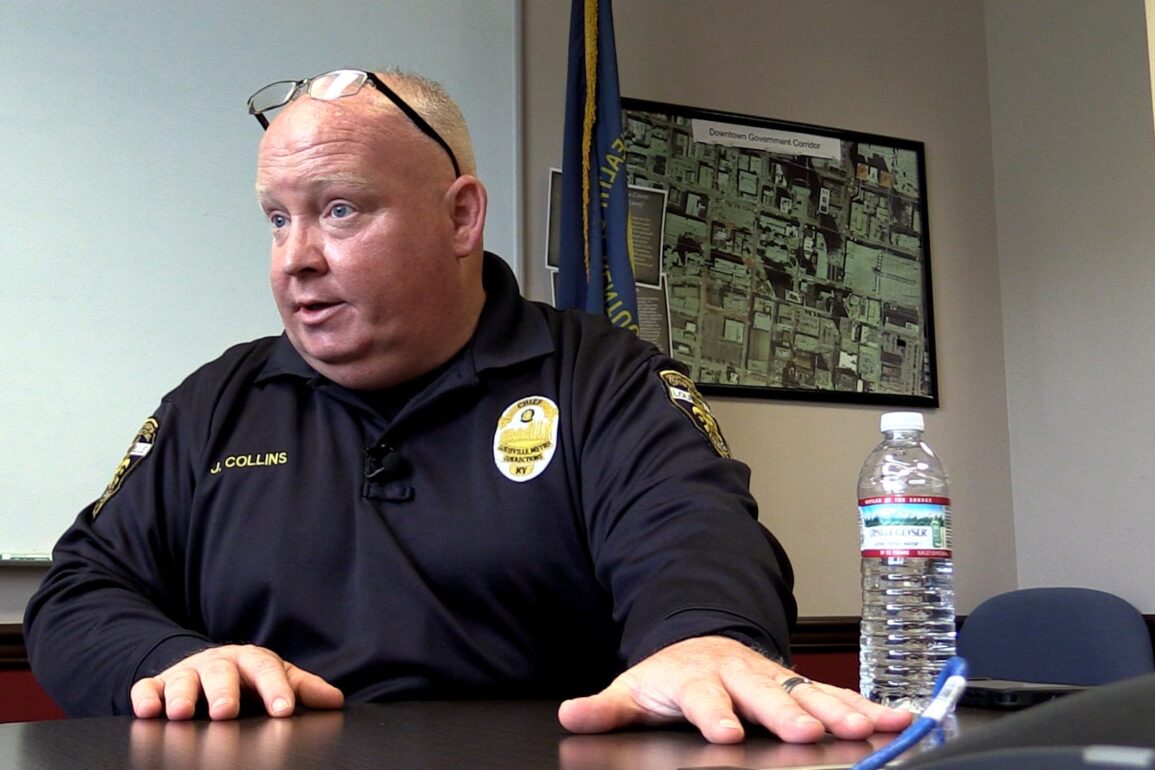Prior to setting criminal justice policy, responsible lawmakers should acknowledge the realities of life for all Kentuckians.

Corrections Chief talks jail challenges, community partnerships
Jerry Collins, chief of Louisville Metro Department of Corrections talks about issues faced at the jail and bringing in community partnerships.
- Criminal justice policy should consider the impact of adverse childhood experiences on individuals’ lives.
- While proving a direct causal link between childhood trauma and adult crime is difficult in court, policymakers must consider these factors.
- Acknowledging the realities of hardship and trauma is crucial for effective policymaking.
Why does someone choose to break the law? As a former prosecutor, the analysis for me used to be pretty straightforward. Was there motive and opportunity? When I stood in the Christian Circuit Court trying criminal cases, the analysis of guilt or innocence didn’t venture much from that fundamental pair of questions. You look at the elements of the charged crime and put on the proof necessary to establish that each one has been sufficiently met to the satisfaction of the jury. They each need to be convinced that each element has been proven, beyond a reasonable doubt.
Policymakers, on the other hands, setting the rules of criminal conduct, and distributing finite taxpayer dollars for the systems of government used to punish, and to correct, criminal behavior, are obligated to consider the reality that criminal conduct is far more complicated than just establishing the elements of the offense to add to the statute book.
How do you make a causal argument that crime X in 2025 was, even in a small way, “caused” by adverse childhood experience Y 15 years ago? In the courtroom, you can’t do it with anything concrete. Juries and judges are often looking for something substantial. “Beyond a reasonable doubt” is the highest legal standard of proof to meet. In court, you can’t definitively say that a defendant’s abused childhood made them steal a car at gunpoint at age 25.
But when setting policy, legislators must consider more.
Life experiences impact a person’s choices
I enjoy taking the occasional hike when our five kids’ schedules and needs permit me to go. The path I’m on dictates the options I have available to me. Sure, I can “choose” to jump over a moss or water-covered rock above a 100-foot drop instead of risking stepping on the slippery surface. But facing that decision was a product of the 100 decisions I made on the path before I got there.
During a recent meeting of the Council on Criminal Justice Women’s Justice Commission, we were listening to a speaker about issues related to women in the criminal justice system, and she used a slide that, for the first time, illustrated the reality that is manifest in every single criminal court docket in Kentucky (and the rest of America). It showed a timeline of a woman’s life from birth to adulthood, with a point designated for each year indicating things that have happened to her.
She was born and during her first year of life she was abused by her mother. In her next several years of adolescence, her mother’s abuse and neglect was joined by her stepfather’s sexual molestation. In her teens, abuse from her mother and stepfather gave way to abuse at the hands of intimate partners. Later in her teenage years, she turned to drug use. It was only a matter of time before she was committing crimes and eventually being convicted and serving time, away from her own children, completing the cycle of brokenness, starting it for yet another generation. The abuse she endured as a child was not a direct cause of her subsequent criminal conduct as an adult, but to pretend the cumulative effects of a lifetime of hardship and adverse life experience don’t have any impact on her life and the choices available to her is as ignorant as it is callous.
Policy that addresses reality will break cycles of incarceration
Criminal justice policy must recognize the reality that, in other contexts, is glaringly obvious to us: we are the product of the decisions we’ve made and the challenges we’ve faced. Is someone who has endured the worst of life guaranteed to face a life of crime? Of course not. There are plenty of stories of incredible turnarounds, people who have broken many generations of violence and poverty. Some of you reading this undoubtedly have a personal testimony of overcoming adversity. You’ve worked hard. But everyone is not so blessed. For many, the cycle continues apace.
Prior to setting criminal justice policy, responsible lawmakers should acknowledge the realities of life for all Kentuckians. In fact, they ought to consider the lives of Kentuckians when they set any policy. The work to create Kentucky’s next biennial budget has already begun. Do lawmakers understand and acknowledge that what they choose to spend on, or cut from, public health in 2026 will have downstream costs, avoided or incurred respectively, to taxpayers elsewhere? They must wrestle with the questions around what state government should do to help Kentuckians trapped in such a destructive multi-generational cycle to break free.
Lawmakers would do well to spend time with a convicted felon, sit and listen to a social worker with a Medicaid client caseload, or volunteer (if they haven’t already) with a local domestic violence shelter. We’d all do well to remember, there but for the grace of God, go I. If we can manage to help stop the cycle or slow it enough to give people a chance to get their heads above water, it would be all to the good for them, for their children and families and the rest of the commonwealth.
Whitney Westerfield is an evangelical Christian, a three-term Republican state senator and attorney from Christian County. He and his wife live in Western Kentucky and have five children.
This post was originally published on this site be sure to check out more of their content.







